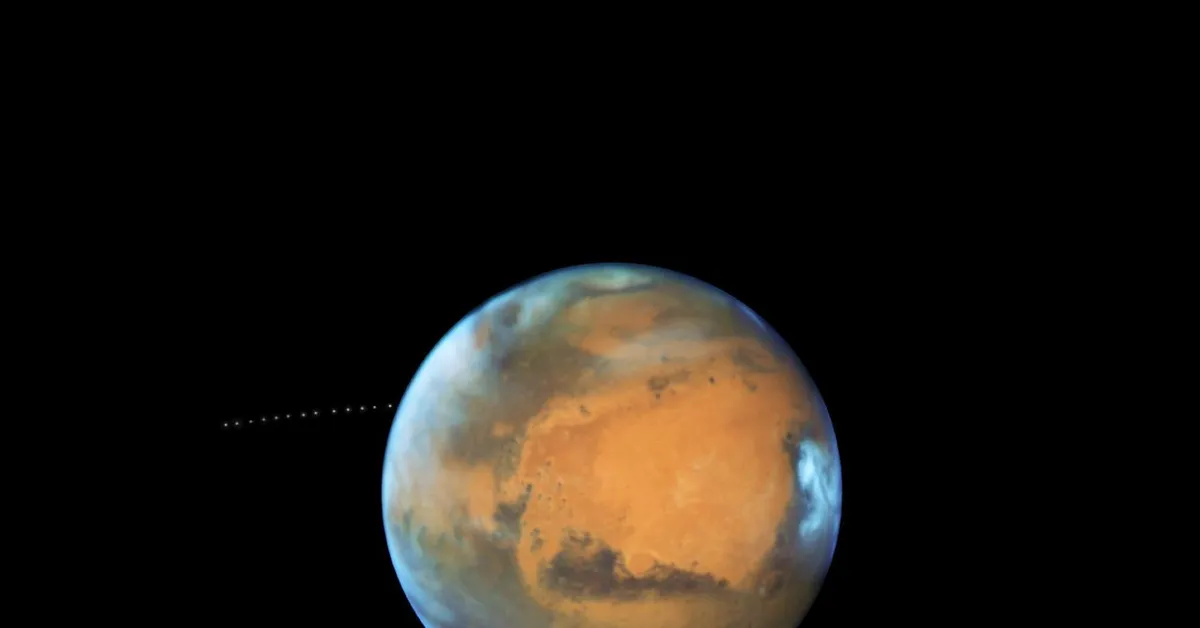
The Wild Plan to Terraform Mars by Slamming Asteroids Into It is a revolutionary concept that aims to transform the Red Planet into a more habitable environment for future colonizers. To achieve this ambitious goal, scientists propose bombarding Mars with water-rich asteroids. This method could significantly increase the planet's atmosphere density, allowing human settlers to survive without the need for pressure suits.
In a groundbreaking discovery, astronomers using the James Webb Space Telescope have confirmed the presence of dimethyl sulfide on the planet K2-18b, located 124 light-years away. This gas is considered a potential biosignature of marine microorganisms, sparking excitement in the scientific community about the possibility of extraterrestrial life beyond our solar system.
The second major meteor shower of the year, the Lyrids Meteor Shower, is set to begin today, with its peak occurring on the night of April 21–22. For astronomy enthusiasts, this is a fantastic opportunity to witness stunning celestial displays. Here’s everything you need to know to catch the best views and prepare for other meteor showers that will appear in 2025.
Physicists are making strides in understanding the complex regions surrounding singularities in black holes. By mapping the chaotic spacetime near these mysterious cosmic phenomena, researchers hope to reconcile the theories of gravity and quantum mechanics, potentially unlocking new insights into the universe's fundamental laws.
Proposed budget cuts of approximately 20 percent for NASA could have severe consequences for American space exploration. These cuts could lead to the closure of the Goddard Space Flight Center and jeopardize critical projects, such as the Nancy Grace Roman Space Telescope. The implications for the United States’ leadership in space are significant and concerning.
The Dinosaur Choir project uses advanced 3D models of ancient skulls, bringing us closer than ever to understanding the sounds that dinosaurs might have produced. This innovative instrument provides a unique opportunity to explore the auditory world of these prehistoric giants.
President Donald Trump's latest round of tariffs has targeted the Heard and McDonald Islands, among others. However, these islands are uninhabited and have no exports, raising questions about the effectiveness and rationale behind such tariffs. The impact on the local wildlife, particularly the numerous penguins that call these islands home, remains a topic of concern.
Finland is on the brink of becoming the first nation to establish a permanent underground storage facility for nuclear waste. In March, the country successfully completed the first test of its encapsulation plant, setting a precedent for other countries grappling with the challenge of radioactive waste management.
SpaceX has achieved a significant milestone in its Starship program with a successful reflight of the Super Heavy booster. This advancement marks a crucial step toward reusability, which is central to the company’s mission of making space travel more economical and accessible.
Researchers in math and computer science have long acknowledged that certain questions are fundamentally unanswerable. Now, physicists are delving deeper into how physical systems impose limits on our ability to predict outcomes, exploring the boundaries of what is knowable and unknowable in the universe.
In a surprising turn of events, it seems that rare earth elements might not be as rare as previously thought. As China limits U.S. access to these critical minerals in response to tariffs, experts suggest that the impact of this move may not be as devastating as Beijing hopes, potentially altering the global dynamics of resource availability.